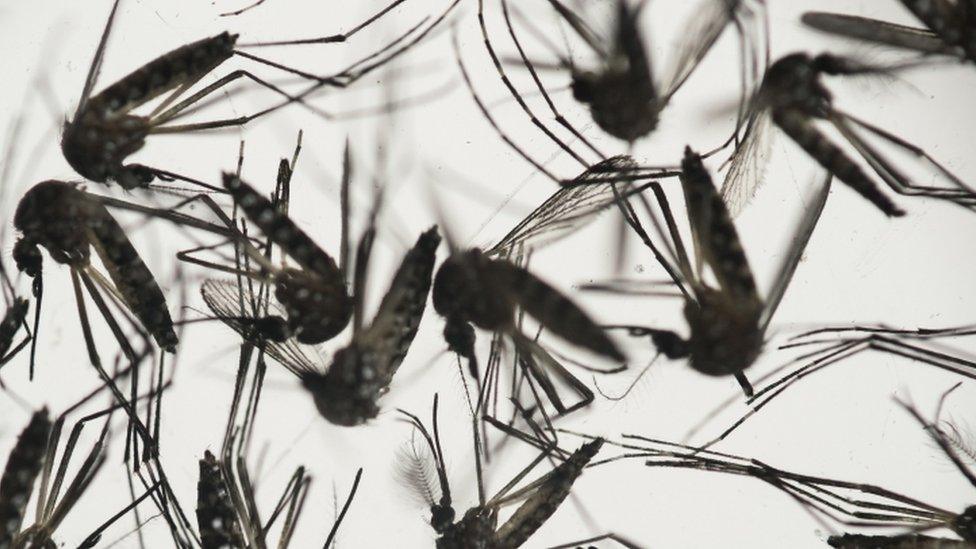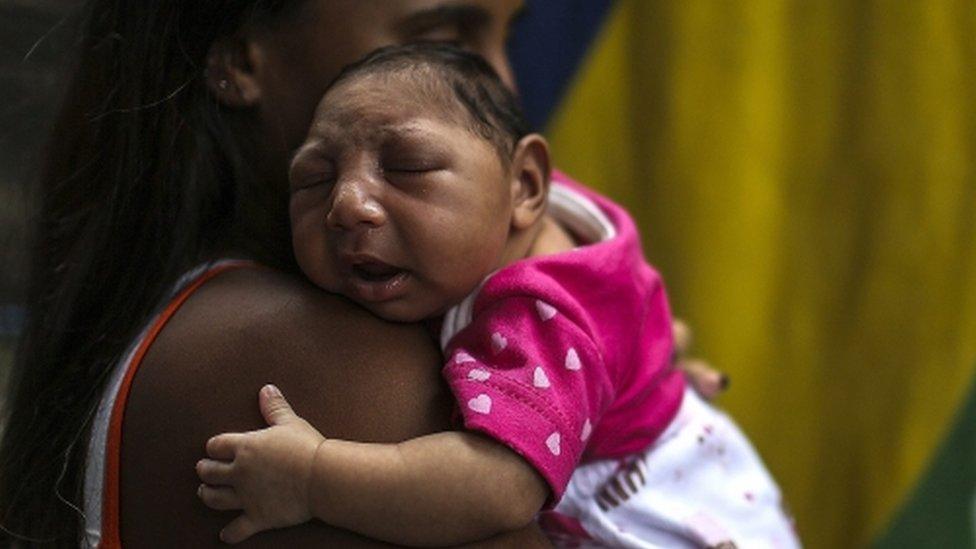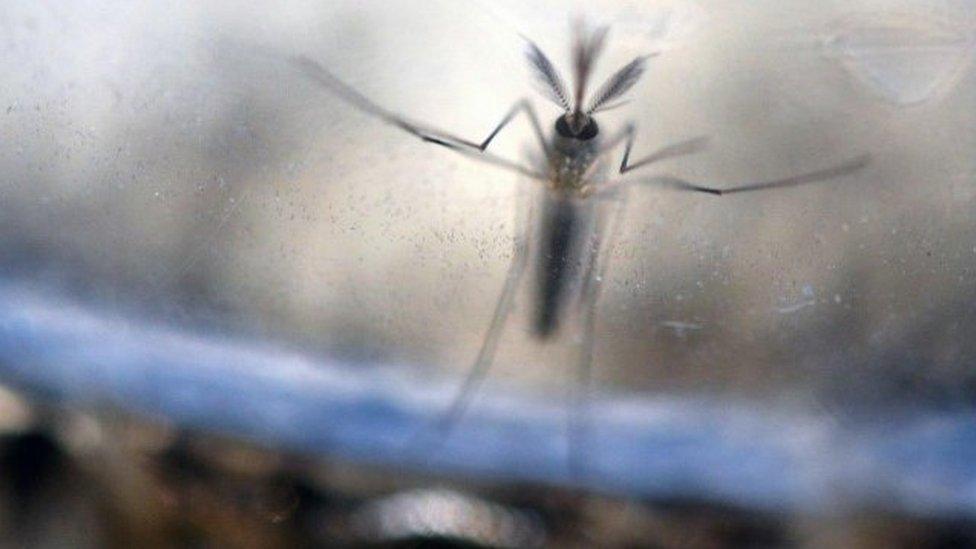Scientists clone Zika for vaccine race
- Published

US scientists have cloned the Zika virus - an important step towards fast-tracking a vaccine against the disease.
The man-made copy is a replica of the strain that is spreading across the Americas and has been linked to brain deformities in newborn babies.
In tests at the University of Texas, the clone could infect mosquitoes - the carrier of Zika - and cause disease in laboratory mice.
Experts say they can use this in experiments to design a good vaccine.
It is hoped a candidate will be ready for testing in the coming months.
But it could be many years before there is a safe and effective jab that can be offered to the general public.

Zika can cause serious harm to unborn babies, but it often has no visible symptoms in the mother.
Experts say a vaccine to protect expectant women, and others at high risk of infection, is one of the most effective ways we have of beating it.
Many different research groups around the world are working to make such a vaccine.
The US National Institute of Allergy and Infectious Diseases hopes to start human clinical trials on its vaccine candidate by September.
What's needed is a "safe" version of Zika that will be enough to make the body ward off the infection without actually causing disease.
The University of Texas team say their cloned virus should help with achieving this. They have published their findings in the journal Cell Host & Microbe., external
Until now, researchers had known the structure of Zika, but they had not replicated it - at least not this strain., external
UK expert Dr Tom Blanchard, from Manchester University, is using a safe derivative of an existing smallpox vaccine to try to make a new antidote for Zika.
He said: "The challenge for people like us who are developing vaccines is to separate out the harmful effects of the virus from the beneficial effects. We want to have something that will replicate but will not cause damage.
"Research such as this could help."
Prof Polly Roy of the London School of Hygiene and Tropical Medicine said: "This is good. Scientists have everything to play around with now."
She said that as well as designing a vaccine, researchers would also be able to test antiviral drugs that might lessen the effects of Zika if someone was already infected.
Follow Michelle on Twitter, external
- Published4 March 2016
